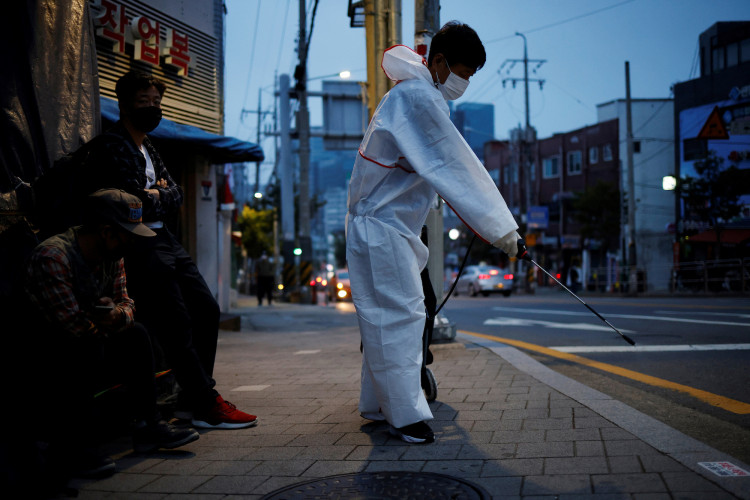The South Korean government is widely expected to impose tougher social distancing measures over the next few days in a bid to control the raging surge in COVID-19 cases that saw record daily highs in new infections during Christmas Week.
Among the harsh restrictions said to be under consideration are banning private social gatherings until January 3, closing ski resorts, prohibiting hotels from selling more than half their rooms, and imposing fines on restaurants if they accept groups of five or more people.
Once praised as a model for successfully reining-in the disease, South Korea became complacent, easing social distancing rules to their weakest in October. The government also allowed high-risk infection venues such as clubs and karaoke bars to remain open. Daily new infections in early November ranged from 100 to 200 compared to the more than 1,000 a day today.
The price to be paid for the country's lapse in judgment in October has been recording high daily cases during Christmas Week, as well as a surge in daily deaths and hospitalizations.
On Saturday, South Korea reported another 1,132 new cases, which was slightly fewer than the record-high 1,241 infections on Christmas Day. Saturday's toll, however, brought the country's total confirmed cases 55,902.
More than 15,000 new cases, or 27% of the total, were added in the last 15 days alone.
The country's total death toll has also surged over the past 15 days and now stands at 793. Of this total, 221 deaths, or 28% of the total, were reported in this two week period.
The Korea Disease Control and Prevention Agency revealed that 229 among the 16,577 active patients are either in serious or critical condition in hospitals.
Public health experts believe tighter restrictions are inevitable, given the daunting rise in all these parameters. They're also reassuring Koreans their health care system is in no danger of collapsing due to the huge surge. They did admit, however, the system is being stretched thin.
"Our hospital system isn't going to collapse, but the crush in COVID-19 patients has significantly hampered our response," said Dr. Choi Won Suk, an infectious disease professor at the Korea University Ansan Hospital.
Choi said the government should have done more to prepare hospitals for this raging winter surge.
"We have patients with all kinds of serious illnesses at our ICUs, and they can't share any space with COVID-19 patients, so it's hard," said Choi. "It's the same medical staff that has been fighting the virus for all these months. There's an accumulation of fatigue."
Since mid-November, South Korea has been battling a third infection wave harder to link to any specific event and thus harder to control. In contrast, the country's first and second waves in late February and August were driven by churchgoers, religious leaders, and far-right protesters railing against mask wearing and social distancing.
Earlier this month, South Korea called in its military to help prevent historic surges in new COVID-19 infections from gaining even more, ground and overwhelming the country's already hard-pressed healthcare system.





